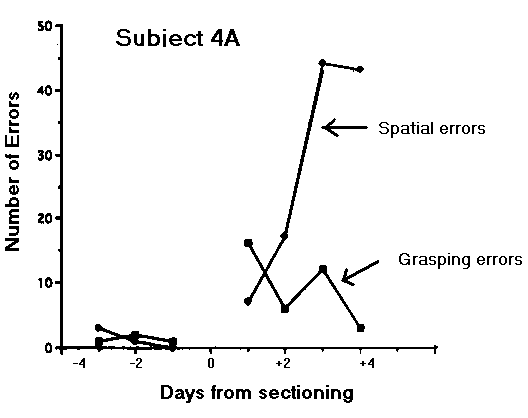![]()
This shows the types of errors made by an adult prior to and after bilateral ophthalmic sections. The errors increase after the surgery, but notice that the immediate effect is to produce a small increase in grasping errors. In these cases, the bird made contact with the seed but could not hold it in its beak. Subsequently grasp errors decline but spatial targeting errors increase in which the bird pecked but either missed the seed or knocked it away. The bird frequently misses the seed toward which its peck is directed. This demonstrates that the trigeminal input plays the important role of giving feedback about the success versus failure of the spatial aspects of the peck. When that feedback is attenuated or perhaps eliminated, the targeting becomes more variable. Thus far, our sham controls do not show decreased efficiency of eating, indicating a specific effect of deafferentation.
